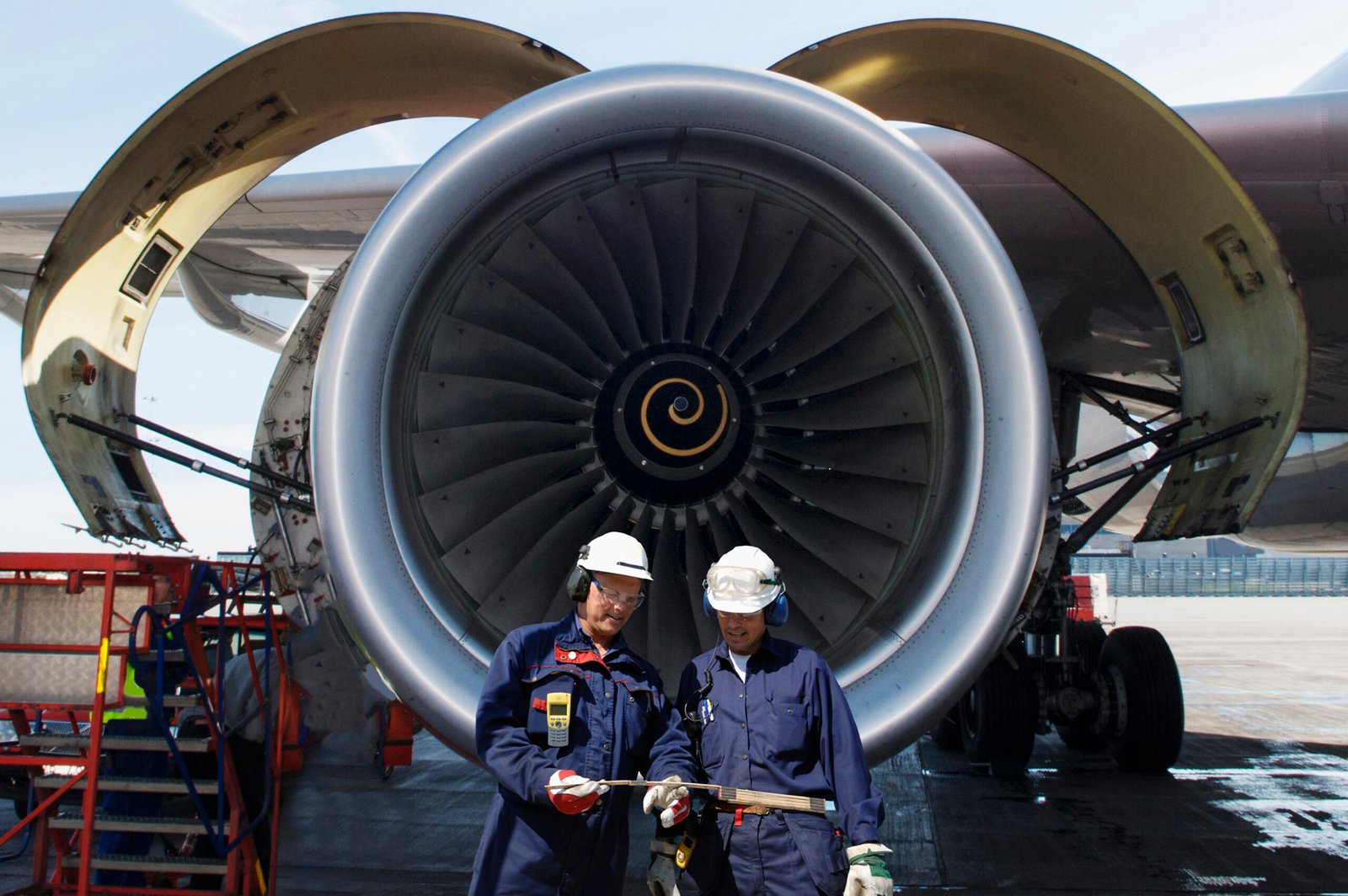Simulator Training
From the Ground Up: Exploring the Evolution of Aircraft Design
Aviation has come a long way since the Wright brothers took their inaugural flight in 1903. Today, aircraft design embodies cutting-edge technology, efficiency, and sustainability. But to truly appreciate this evolution, it’s essential to understand the pathways that aspiring aviators and engineers can take to delve into this fascinating world.
Aviation schools offer a diverse range of courses tailored for different interests within the field. Broadly categorized, these institutions provide programs in pilot training, aircraft maintenance, aviation management, and aerospace engineering.
1. **Pilot Training Programs**: These are designed for individuals who dream of soaring through the skies as commercial or private pilots. Courses typically cover topics such as aerodynamics, navigation, meteorology, and regulations set forth by governing bodies like the FAA.

2. **Aircraft Maintenance Programs**: For those interested in the technical side of aviation, these courses focus on ensuring that aircraft remain safe and operational. Students learn about engine mechanics, electrical systems, and airframe structures.
3. **Aviation Management Degrees**: This branch appeals to future leaders in aviation industries—those who wish to oversee operations at airports or airlines. Courses may include business administration principles tailored specifically for aviation contexts.
4. **Aerospace Engineering**: For a more technical dive into aircraft design itself, students can pursue degrees in aerospace engineering where they study everything from materials science to propulsion systems.
As you embark on your journey through aviation education or simply seek out more information about this ever-evolving field, many blogs and websites serve as valuable resources. Here’s a list worth checking out:
**Airways Magazine**: A well-respected publication covering all things aviation-related—from airline news to aircraft features.
**Flying Magazine**: A treasure trove for pilots featuring tips on flight techniques alongside product reviews.
**The Aviation Herald**: An informative platform focusing on incidents and accidents within aviation.
**Plane & Pilot Magazine**: Offers a mix of industry news along with engaging articles tailored for flying enthusiasts.
Additionally, social media platforms have become vibrant spaces for community engagement among aviators:
**Instagram** is filled with stunning aerial photography shared by pilots around the globe.
On **Twitter**, hashtags like #AvGeek attract a plethora of tweets detailing daily happenings in aviation.
YouTube channels dedicated to flight simulation and pilot experiences provide immersive content that captures both novice interest and seasoned expertise.
When it comes down to practical training facilities recognized by the FAA (Federal Aviation Administration), there’s no shortage of reputable flight schools across the country. These institutions often feature state-of-the-art simulators that replicate real-world flying conditions while minimizing risk exposure during training sessions.
Flight schools such as Embry-Riddle Aeronautical University or ATP Flight School are renowned for their comprehensive curriculum combined with hands-on experience using advanced simulators equipped with realistic cockpit layouts complete with modern avionics systems.
In conclusion, whether you’re an aspiring pilot dreaming high above clouds or an engineer fascinated by how planes are constructed from scratch—understanding various educational pathways in aviation will pave your personal runway toward success. The evolution of aircraft design continues; yet its roots lie firmly planted in educational foundations built from ground up!
The Future of Flight: Innovations Shaping the Aviation Industry
As we soar into a new era of aviation, the sky is no longer the limit—it’s just the beginning. With technological advancements and innovative ideas taking flight, the aviation industry is undergoing profound transformations. From educational pathways to cutting-edge training tools, let’s explore how these developments are shaping the future of flight.
## Aviation Schools by Types of Courses
Education plays a pivotal role in preparing aspiring aviators for their careers. Various types of courses cater to different interests within this expansive field. For those keen on becoming pilots, traditional flight schools offer comprehensive programs that include ground school theory, practical flight training, and specialized certifications like Instrument Rating or Commercial Pilot License.
Meanwhile, aviation management courses focus on the business side of flying—covering topics like airport operations, regulatory compliance, and airline management. These programs equip students with skills essential for overseeing complex aviation enterprises.

For those intrigued by technology’s role in aviation, many institutions now provide courses in aeronautical engineering or drone technology. As unmanned aerial vehicles (UAVs) become more prevalent in both commercial and recreational airspace, knowledge in this area is increasingly valuable.
Finally, maintenance technician programs train individuals to ensure aircraft safety and performance through hands-on experience with engines and systems. The demand for skilled technicians continues to rise as fleets expand globally.
## Lists of Aviation Blogs, Websites, Social Media Sites
For enthusiasts eager to stay updated on industry trends or share insights with fellow aviators, numerous blogs and websites serve as excellent resources:
1. **AirlineReporter** – Focused on airline reviews and news.
2. **AvGeekery** – A captivating blog for aviation aficionados packed with stories from around the world.
3. **FlightGlobal** – Offers comprehensive news coverage on all things aviation-related.
4. **Simple Flying** – An accessible site that covers breaking news about airlines and aircraft.
5. **Pilot’s Digest** – Provides tips for pilots along with interesting articles about flying experiences.

Social media has also become an invaluable tool for connecting with fellow aviators. Platforms like Instagram showcase stunning aerial photography under hashtags like #aviationlovers or #aircraftspotting while Twitter serves as a rapid-fire news source where industry experts share updates using handles such as @AviationWeek or @FltPlan.
## FAA Flight Schools/Airplane-Schools/Simulators
The Federal Aviation Administration (FAA) recognizes various flight schools across the United States that adhere to rigorous safety standards and training protocols. Aspiring pilots can enroll in FAA-certified schools which provide structured curriculums designed to take them from novice flyers to seasoned aviators.
In addition to traditional classroom settings, simulators have revolutionized pilot training by offering realistic environments without leaving the ground. Modern flight simulators replicate almost every aspect of flying—from environmental conditions to cockpit instrumentation—allowing students to gain crucial experience before stepping into real aircraft.
Moreover, many innovative platforms are emerging that utilize virtual reality (VR) technology for immersive training experiences—making it possible for students to practice maneuvers safely and effectively from anywhere they choose.
## Conclusion
As we look ahead into the horizon of aviation innovation—from diverse educational opportunities to groundbreaking technologies—the future appears bright indeed! New generations of pilots will be equipped not only with superior skills but also an understanding of how emerging trends shape air travel’s landscape today—and beyond! Embracing these changes ensures a thrilling journey awaits us all in the skies above!
Navigating Turbulence: How Aviation Adapts to Global Challenges
In a world where uncertainty and change are constants, the aviation industry continues to demonstrate remarkable resilience and adaptability. From evolving technological landscapes to shifting regulatory frameworks, the sector faces numerous challenges head-on. Central to this evolution is education, which plays a pivotal role in preparing the next generation of aviation professionals.
*Aviation Schools: Types of Courses**
Education in aviation is as diverse as the field itself. Various schools offer specialized programs that cater to different interests and career paths. Here’s a breakdown of some common types of courses available:

1. **Pilot Training Programs**: These are perhaps the most well-known offerings, encompassing private pilot licenses (PPL), commercial pilot licenses (CPL), and airline transport pilot licenses (ATPL). Students learn not just how to fly, but also about navigation, meteorology, and aircraft systems.
2. **Aircraft Maintenance Engineering**: For those inclined towards technical expertise, these courses focus on maintaining and repairing aircraft systems. They cover everything from jet engines to airframe structures.
3. **Air Traffic Control Training**: Aspiring air traffic controllers undergo rigorous training that includes simulations and real-time decision-making exercises to ensure safe skies.
4. **Aviation Management Programs**: These courses prepare students for administrative roles within airports or airlines, focusing on operations management, finance, marketing, and human resources specific to aviation.
5. **Unmanned Aerial Systems (UAS)**: With the rise of drones in commercial applications—from delivery services to agricultural monitoring—these programs teach students how to operate and manage UAS effectively.
Each type of course equips individuals with unique skills tailored for various sectors within aviation.
*Aviation Blogs, Websites & Social Media Sites**
Staying informed about industry trends is crucial for aviation enthusiasts and professionals alike. Here’s a list of noteworthy blogs, websites, and social media platforms dedicated to aviation:
**Airliners.net**: An extensive online community showcasing photographs and discussions surrounding various aircraft.
**The Points Guy**: This blog covers travel tips, loyalty programs, and airline reviews—perfect for frequent flyers seeking insight.
**Flying Magazine**: A treasure trove for pilots featuring articles on flying techniques, safety tips, gear reviews, and more.
**FlightAware.com**: Offers real-time flight tracking data along with insights into airport operations.
**YouTube Channels like Mentour Pilot & Captain Joe**: These channels provide engaging video content ranging from flight tutorials to behind-the-scenes glimpses at airline operations.
Social media platforms such as Instagram or Twitter also host vibrant communities showcasing stunning aerial photography or sharing personal flying experiences under hashtags like #AvGeek or #PilotLife.
*FAA Flight Schools & Simulators**
The Federal Aviation Administration (FAA) plays an integral role in regulating flight schools across the United States. FAA-approved flight schools maintain rigorous standards ensuring quality education in piloting techniques as well as compliance with safety regulations.
Many schools now incorporate advanced simulators into their curriculum—enabling students to practice flying in highly realistic environments without the risks associated with actual flights. These simulators range from basic setups mirroring small aircraft cockpits all the way up to full-motion simulators simulating large commercial jets.
As global challenges continue to shape industries worldwide—from climate change initiatives prompting greener technologies in aviation vehicles to navigating post-pandemic recovery—the educational backbone provided by diverse aviation courses ensures that professionals are ready for whatever turbulence may lie ahead.
In conclusion, through innovative training programs and robust online resources combined with FAA oversight on flight education standards—even amidst adversity—the world of aviation remains steadfastly airborne!
Navigating the Skies: The Evolution of Commercial Aviation Over the Decades
The world of aviation has undergone a transformative journey, evolving from rudimentary flight attempts to a sophisticated industry that connects millions across the globe. As we soar through this evolution, it’s essential to understand how various educational pathways have developed to prepare future aviators. Today, aspiring pilots and aviation enthusiasts can explore a diverse array of aviation schools offering specialized courses tailored to different ambitions within the field.
Aviation schools come in various forms, catering to distinct interests and career paths. For instance, traditional flight training schools focus primarily on aircraft operation, offering courses such as Private Pilot License (PPL), Instrument Rating (IR), and Commercial Pilot License (CPL). These programs emphasize hands-on flight experience alongside theoretical knowledge. Meanwhile, technical schools provide comprehensive training on aircraft maintenance and engineering, equipping students with skills needed for roles like Airframe and Powerplant Mechanic (A&P).

In addition to these foundational programs, universities have begun integrating aviation into their broader academic offerings. Many now offer degree programs in Aviation Management or Aviation Technology that combine business acumen with practical flying skills. This interdisciplinary approach prepares students for management roles within airlines or airport operations. Moreover, online courses have emerged as a flexible option for those unable to attend traditional classes; they cover topics ranging from air traffic control procedures to advanced navigation systems.
As you embark on your journey in aviation education or simply seek knowledge about this expansive field, numerous blogs and websites can serve as invaluable resources. Websites like AOPA.org (Aircraft Owners and Pilots Association) provide extensive information on pilot training, safety tips, and industry news. Additionally, AVweb.com offers insightful articles on current events affecting the aviation community.
Social media platforms are also rich with content for aviation aficionados. Instagram is packed with stunning visuals from pilots showcasing breathtaking aerial views under hashtags like #pilotlife or #aviationlovers. Twitter serves as an excellent real-time news source where accounts such as @AirwaysNews keep followers updated on industry developments.
For those eager to take their passion further or considering becoming pilots themselves, researching FAA-approved flight schools is crucial. The Federal Aviation Administration maintains strict standards for certification that ensures quality education across its accredited institutions. Schools such as Embry-Riddle Aeronautical University and ATP Flight School are recognized leaders in pilot training programs.

Moreover, technological advancements have revolutionized how aspiring aviators train with simulators playing an essential role in modern instruction. Flight simulators create realistic flying experiences without leaving the ground—ideal for mastering complex maneuvers or navigating adverse weather conditions safely before taking to the skies.
In summary, the evolution of commercial aviation over decades has not only reshaped how we travel but also redefined how we educate future generations of aviators. With countless resources available—from diverse types of courses offered at various institutions to engaging online communities—there’s never been a better time to explore what it means to navigate the vast skies above us! Whether you’re interested in flying high or keeping planes running smoothly on the ground, there’s a path waiting just for you in this exhilarating industry.
Aviation Careers: Navigating the Skies of Opportunity
The aviation industry is a sprawling landscape of opportunities, beckoning those who dream of soaring through the skies. Whether you envision yourself as a pilot, air traffic controller, aircraft mechanic, or flight attendant, various educational pathways can set you on the right course. Understanding what aviation schools offer can help you find your niche in this dynamic field.
*Types of Aviation Courses**
Aviation schools provide a plethora of courses tailored to different career aspirations. Here are some types to consider:
1. **Pilot Training Programs**: These courses focus on imparting essential flying skills and knowledge about aircraft operations. They often include both ground school—where students learn aerodynamics, navigation, and weather—and in-flight training.
2. **Air Traffic Control (ATC) Programs**: ATC courses teach students how to manage aircraft safely and efficiently within controlled airspace. Aspiring controllers gain insight into communication protocols and radar systems through simulation exercises.
3. **Aircraft Maintenance Engineering**: This technical pathway equips students with hands-on skills required for maintaining and repairing aircraft. Courses cover everything from electrical systems to structural integrity and comply with FAA regulations.
4. **Aviation Management Degrees**: Ideal for those aiming for leadership roles in airlines or airports, these programs blend business principles with aviation-specific subjects like logistics and safety management.
5. **Flight Dispatch Training**: Flight dispatchers play a crucial role in ensuring that flights operate smoothly by planning routes and managing schedules. Specialized courses prepare students for this fast-paced environment.
6. **Specialized Certifications**: Many aviation schools also offer short-term certifications in areas such as drone piloting or safety management systems—perfect for those looking to enhance their employability without committing to long-term education.
With so many options available, potential aviators have plenty of choices tailored to their interests!
*Online Resources for Aviation Enthusiasts**
In today’s digital age, staying informed is more accessible than ever! There’s an abundance of blogs, websites, and social media platforms dedicated to aviation topics:
*Blogs*: Check out sites like *AirlineReporter*, which features news about airlines; *Flying Magazine*, offering tips from seasoned pilots; or *The Air Current*, focusing on industry analysis.
*Websites*: The FAA’s official site is invaluable for information on regulations and licensing requirements. Additionally, organizations like AOPA (Aircraft Owners and Pilots Association) provide resources tailored for pilots at all levels.
*Social Media*: Platforms like Instagram showcase stunning aerial photography under hashtags such as #aviationlovers or #flyinghigh. Twitter accounts like @AvGeekGirl share daily insights into aviation trends that can help broaden your knowledge base.
*FAA Flight Schools & Simulators**
When it comes to practical training, FAA-approved flight schools are your best bet—they meet strict guidelines ensuring quality education. Institutions such as Embry-Riddle Aeronautical University and ATP Flight School have garnered reputations as leading providers of pilot training across the United States.


For those seeking hands-on experience without immediate access to an aircraft, simulators serve as excellent alternatives! Advanced flight simulators mimic real-life scenarios allowing aspiring pilots to practice maneuvers safely before taking off into the skies themselves.
As you embark on this exciting journey through the world of aviation careers, remember that every takeoff begins with a solid foundation—education being paramount! Equip yourself with knowledge from reputable sources while honing your skills at top-notch institutions, paving your way toward a rewarding career navigating the skies of opportunity!




